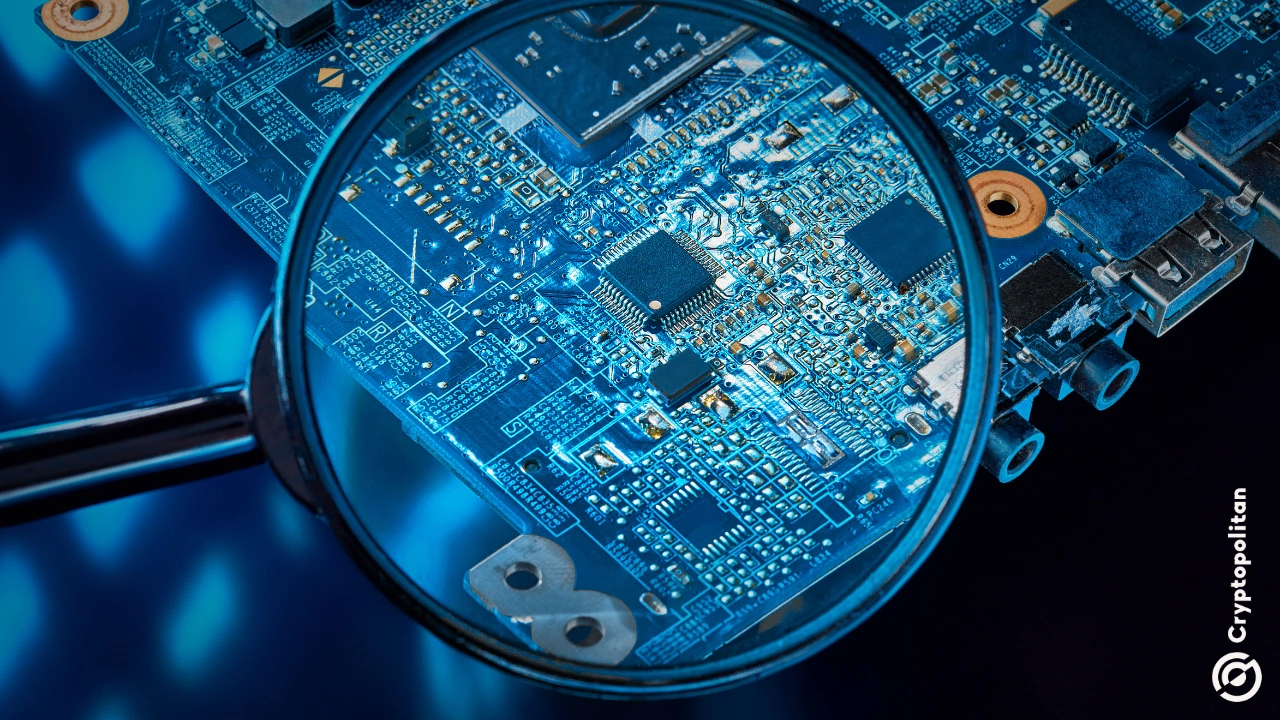The China Association of Automobile Manufacturers on Friday kicked off a full-scale investigation into what it describes as discriminatory U.S. trade policies targeting chip supply in the country’s auto sector, according to a formal statement seen by Cryptopolitan.
Automakers are being asked to send in their official feedback beginning October 13, marking a new front in the chip war between China and the United States.
The probe comes directly after China’s Ministry of Commerce opened its own investigation into U.S. chip dumping and trade bias on September 13, timed just before new trade talks between the two sides started in Spain.
The auto group’s move is viewed as part of a larger government-led effort to evaluate the damage caused by U.S. tech restrictions. It also comes as tensions heat up between Washington and Beijing over Nvidia chips, AI dominance, and access to advanced compute hardware.
Just days before the car group’s announcement, Republican House Speaker Mike Johnson slammed China on CNBC’s Squawk Box, calling the country an “adversary” and accusing it of stealing American IP.
“They steal our intellectual property,” Mike said. “They have no regard whatsoever for U.S. trademark law or any of the other provisions that make for fair trade agreements. It is not the fault of the United States that there are these strained relations.”
China halts Nvidia chip sales as officials ramp pressure
Hours before Mike’s comments aired, the Cyberspace Administration of China reportedly ordered domestic tech companies to stop buying Nvidia’s RTX Pro 6000D, a GPU model custom-built for the country.
That update was reported by the Financial Times, which cited people briefed on the decision. Nvidia CEO Jensen Huang, while speaking to reporters at an event in London that same day, gave a measured response.
“We can only be in service of a market if a country wants us to be,” Jensen said. “I’m disappointed with what I see, but they have larger agendas to work out between China and the United States.”
The bigger picture is that China’s local AI ecosystem is moving to fill the gap. On Thursday, Huawei introduced new AI compute infrastructure using its own Ascend chip lineup, touting them as the “world’s most powerful” in the training space, as Cryptopolitan reported.
SemiAnalysis, a U.S.-based tech research firm, found back in April that Huawei’s CloudMatrix system beat out Nvidia’s AI compute platform on several performance metrics, despite each Ascend processor offering only one-third the power of Nvidia’s chips. Huawei made up for that by interconnecting five times as many chips.
At the same time, newer players like DeepSeek are signaling support for domestic hardware. The AI start-up said its latest model will work with China’s “next generation” AI chips.
And it’s not just small firms making the switch. Alibaba and Baidu have also started using their own internally built processors for some of their AI model training workloads — reducing, but not eliminating, their reliance on Nvidia.
Analysts say China is using chip market as trade leverage
Trade analysts now believe the entire move, from the Nvidia chip ban to the automotive chip probe, may be part of a larger negotiation play. AJ Kourabi, a tech analyst at SemiAnalysis, said the strategy appears to be an effort to gain leverage in ongoing U.S.-China tariff discussions.
“The move is likely to be a negotiation tactic as part of a broader set of discussions involving other topics, including tariffs,” AJ said. “China is no doubt trying to encourage and establish silicon self sovereignty, while also getting the best possible chip in the meantime.”
Ironically, while Beijing clamps down on U.S. chips, Washington is now signaling the opposite. The Biden administration — once fully committed to blocking China’s access to advanced U.S. processors — is reportedly considering approving the export of Nvidia chips more powerful than the current H20 model.
This is a dramatic reversal. Under Donald Trump, who is now back in the White House, the U.S. sharply ramped up chip export controls to limit China’s access to AI compute and crypto mining hardware. That momentum carried into the early Biden years. Now, the White House appears to be walking it back.
Don’t just read crypto news. Understand it. Subscribe to our newsletter. It’s free.
This articles is written by : Nermeen Nabil Khear Abdelmalak
All rights reserved to : USAGOLDMIES . www.usagoldmines.com
You can Enjoy surfing our website categories and read more content in many fields you may like .
Why USAGoldMines ?
USAGoldMines is a comprehensive website offering the latest in financial, crypto, and technical news. With specialized sections for each category, it provides readers with up-to-date market insights, investment trends, and technological advancements, making it a valuable resource for investors and enthusiasts in the fast-paced financial world.
